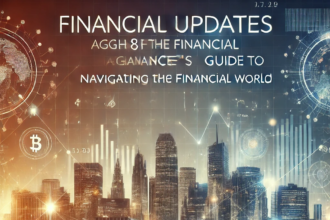Introduction
Crypto fintechzoom of cryptocurrency and financial technology (fintech) has brought about a seismic shift in the global financial landscape. These innovative technologies are not only reshaping traditional banking and finance but also creating new opportunities for growth and development. In this comprehensive article, we delve into the intricate world of crypto fintech, exploring its impact, benefits, and future prospects.
Understanding Crypto Fintech

What is Crypto Fintech?
crypto fintechzoom is the amalgamation of cryptocurrency and financial technology, leveraging blockchain and digital assets to revolutionize financial services. This intersection provides innovative solutions to enhance efficiency, security, and accessibility in financial transactions.
The Role of Blockchain Technology
At the core of crypto fintech lies blockchain technology, a decentralized ledger system that ensures transparency and security. Blockchain enables peer-to-peer transactions without intermediaries, reducing costs and enhancing speed. This technology is pivotal in the development and operation of cryptocurrencies like Bitcoin, Ethereum, and many others.
Key Components of Crypto Fintech
1. Cryptocurrencies
Cryptocurrencies are digital or virtual currencies that use cryptography for security. They operate independently of a central bank, making them decentralized. Bitcoin, the first cryptocurrency, set the stage for numerous others, including Ethereum, Ripple, and Litecoin. These digital assets are traded on various cryptocurrency exchanges, providing opportunities for investment and wealth generation.
2. Digital Wallets
Digital wallets are applications or online platforms that store users’ cryptocurrency holdings securely. They facilitate easy transactions and provide an interface for managing digital assets. Examples of popular digital wallets include Coinbase, MetaMask, and Ledger.
3. Decentralized Finance (DeFi)
DeFi is a revolutionary sector within crypto fintech that aims to recreate traditional financial systems in a decentralized manner. It includes various financial services like lending, borrowing, trading, and investing, all conducted through blockchain technology. DeFi platforms such as Aave, Uniswap, and Compound are leading the charge in this space.
4. Smart Contracts
Smart contracts are self-executing contracts with the terms of the agreement directly written into code. They run on blockchain networks like Ethereum, ensuring transparency and reducing the need for intermediaries. Smart contracts are instrumental in various applications, from decentralized applications (dApps) to automated financial agreements.
Benefits of Crypto Fintech
1. Enhanced Security
Crypto fintech leverages cryptographic techniques and blockchain technology, providing robust security measures. Transactions are secure, transparent, and immutable, reducing the risk of fraud and unauthorized access.
2. Cost Efficiency
By eliminating intermediaries, crypto fintech reduces transaction costs significantly. This is particularly beneficial for cross-border transactions, where traditional banking systems charge exorbitant fees.
3. Financial Inclusion
Crypto fintechzoom promotes financial inclusion by providing access to financial services for the unbanked and underbanked populations. Digital wallets and DeFi platforms offer an easy entry point for individuals without access to traditional banking.
4. Transparency and Trust
Blockchain’s transparency fosters trust among users. All transactions are recorded on a public ledger, making it easy to verify and track financial activities. This transparency is crucial for building trust in the financial ecosystem.
Challenges Facing Crypto Fintech
1. Regulatory Uncertainty
The regulatory landscape for crypto fintech is still evolving. Different countries have varying approaches to regulation, creating uncertainty for businesses and investors. Striking a balance between innovation and regulation is essential for the growth of this sector.
2. Security Concerns
While blockchain technology is secure, the broader crypto fintech ecosystem is not immune to cyber-attacks. Hacks, scams, and phishing attacks pose significant risks, necessitating continuous advancements in security measures.
3. Volatility
Crypto fintechzoom Cryptocurrencies are known for their price volatility. This unpredictability can deter mainstream adoption and make it challenging for businesses to integrate crypto payments seamlessly.
Future Prospects of Crypto Fintech

1. Mainstream Adoption
As awareness and understanding of crypto fintech grow, mainstream adoption is expected to increase. Businesses, governments, and individuals are gradually recognizing the benefits of integrating cryptocurrency and blockchain technology into their operations.
2. Technological Advancements
Ongoing technological advancements will further enhance the capabilities of crypto fintech. Innovations in blockchain scalability, interoperability, and security will pave the way for more sophisticated applications and services.
3. Increased Regulation and Compliance
As the sector matures, we can expect more comprehensive regulatory frameworks to emerge. Clear regulations will provide a safer environment for investors and businesses, fostering growth and stability.
4. Integration with Traditional Finance
crypto fintechzoom is likely to integrate more seamlessly with traditional financial systems. Hybrid solutions that combine the best of both worlds will emerge, offering enhanced services and products to consumers.
Conclusion
Crypto fintechzoom is undeniably transforming the financial landscape, offering innovative solutions that enhance efficiency, security, and inclusivity. Despite challenges, the future of crypto fintech looks promising, with potential for mainstream adoption, technological advancements, and improved regulatory clarity. As we move forward, the synergy between cryptocurrency and fintech will continue to drive the evolution of the financial industry.

